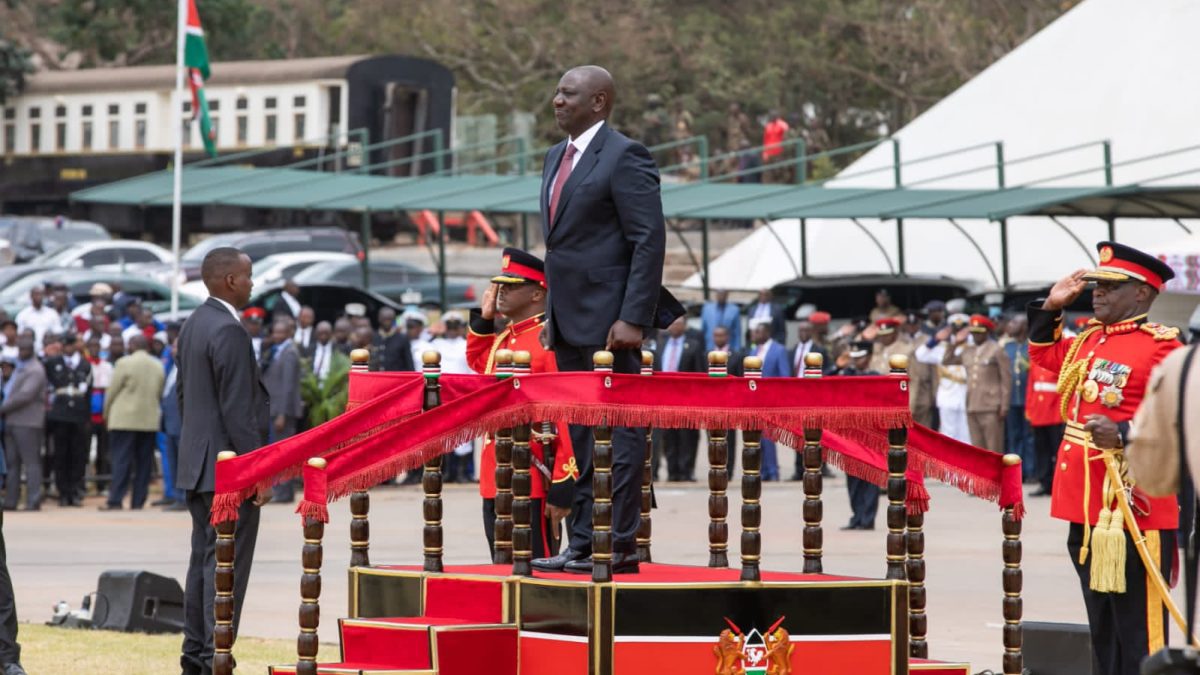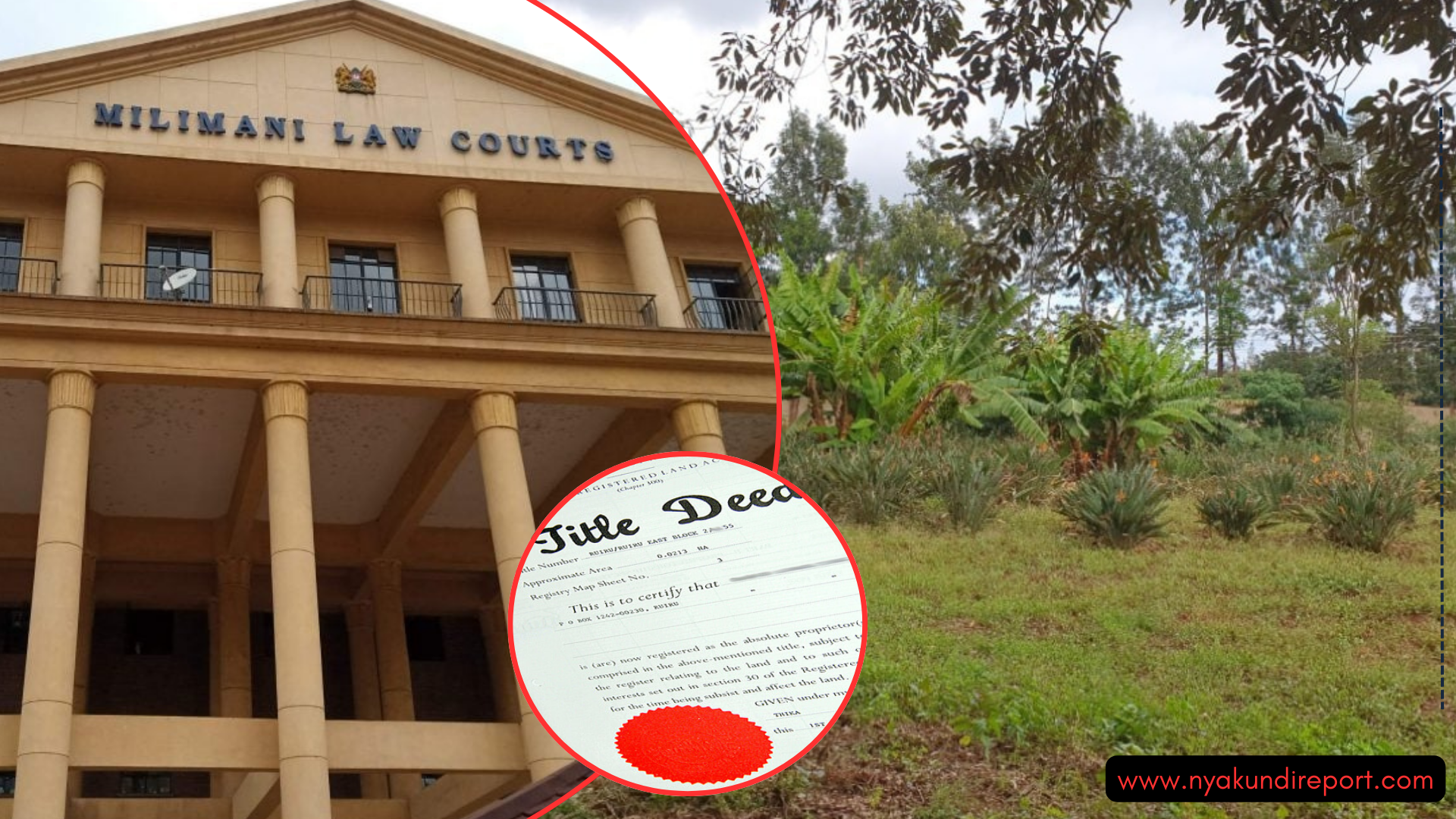Siaya County has found itself in the spotlight after County Commissioner Mobert Komora directed all civil servants who failed to attend the Mashujaa Day celebrations to submit written explanations for their absence.
The stern directive followed a noticeably low turnout at the annual event held at Jaramogi Oginga Odinga grounds, where less than 200 county employees showed up. Komora’s order has sent shockwaves through the county’s civil service, signaling a tougher stance on accountability and patriotism among government workers.

Why Siaya County Commissioner Issues Show Cause Letters to Civil Servants for Missing Mashujaa Day Event
The low attendance at the Mashujaa Day event visibly disappointed County Commissioner Mobert Komora. He addressed the crowd at the venue and condemned the widespread absenteeism, calling it negligence and disrespect for national values.
“Every civil servant must observe national celebrations. This is not a day to stay home and watch television. They should be here,” he declared firmly.
Komora emphasized that the national holiday honors Kenya’s heroes and heroines and warned that no officer should treat it casually. He ordered his deputy to conduct an immediate roll call of all government officers present and demanded written explanations from those absent. He cautioned that anyone who ignored the directive would face disciplinary action, including show-cause letters.
Komora’s directive sent a strong message about civic responsibility in public service. He reminded all officers that government work demands full commitment—both in office and in honoring national ceremonies that bring Kenyans together.
Komora’s Tough Message to Absentee Civil Servants
In his speech, Komora delivered a stern message to those who chose to skip the celebration. He stated that any government officer unwilling to attend important national functions should consider resigning.
“If they do not work for the government, or the Siaya County government, they can kindly tender their resignation letters; we will find other people who can work for the government,” he said.
His words reflected growing frustration among county leaders over what they perceive as declining discipline among public officers. The commissioner insisted that such events are not optional, and every civil servant must demonstrate respect and loyalty to the country’s institutions.
Komora’s remarks underline a wider issue—declining public participation in national holidays. Over the years, national celebrations such as Mashujaa Day and Madaraka Day have seen fewer public servants attending, with some treating the occasions as ordinary days off rather than patriotic observances.
By issuing the show-cause directive, Komora intends to restore a sense of duty and respect for national symbols within the public service. His move may also serve as a precedent for other counties struggling with low staff engagement during state events.
Mashujaa Day Attendance Dips Across the Country
The low turnout at the Siaya Mashujaa Day event was not an isolated case. Several other counties reported similar attendance issues. In Mombasa, County Commissioner Mohammed Nur admitted that the turnout was significantly lower than expected.
However, Nur attributed the situation to the burial of former Prime Minister Raila Odinga, which took place a day before the national celebrations in Bondo, Siaya County. The funeral drew thousands of mourners, including top national leaders, which may have affected attendance in various regions.
This year’s Mashujaa Day carried deep emotional significance. The government dedicated the celebrations to honor the late Raila Odinga, recognizing his lifelong contribution to Kenya’s democracy and development. President William Ruto, speaking during the national event at Ithookwe Stadium in Kitui, conferred on Odinga the Chief of the Order of the Golden Heart—Kenya’s highest civilian honor.
In Siaya, Odinga’s home county, the absence of many civil servants from the Mashujaa Day event came as a surprise, considering the national mood of remembrance and unity. Local residents and leaders had expected a full show of solidarity, but the empty seats told a different story.
A Wake-Up Call for Public Servants
Komora’s decision to issue show-cause letters has reignited debate on discipline and patriotism within Kenya’s public sector. While some argue that civil servants should not be coerced into attending national events, others believe attendance is part of their duty to the state.
For Siaya, the directive marks a turning point in how local administrators will handle state functions in the future. Public servants will now have to think twice before skipping key national celebrations.
By enforcing accountability, Komora hopes to instill a renewed sense of civic responsibility among county employees. His tough message serves as a reminder that working for the government means being present not just in offices, but also in the moments that celebrate Kenya’s identity and unity.











































